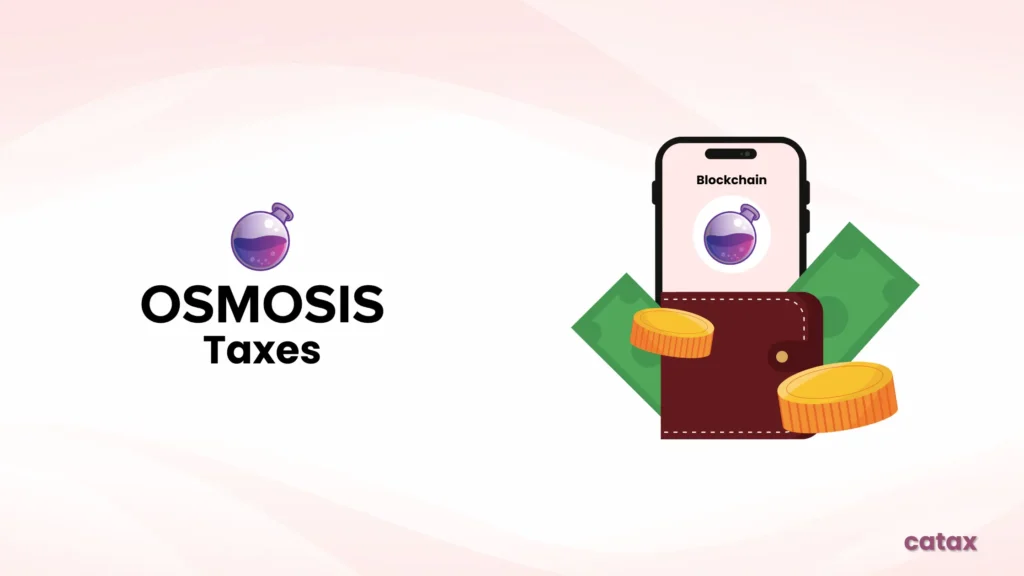Tax laws regarding cryptocurrency vary globally, and Sonic (S) is no different. Whether you are buying, selling, trading or staking Sonic, depending on where you reside and how you utilize your crypto, potential taxes liability may apply to you. You should familiarize yourself with how the tax authorities in your country view crypto activities to ensure compliance and to avoid any unwelcomed penalties.
This guide will outline everything you need to know relating to Sonic and taxes, in straightforward and easy-to understand language.

- How to Connect Your Sonic Wallet to Catax
- Are Sonic (S) Transactions Taxable?
- Can You Deduct Trading Fees and Other Costs?
- How Is Sonic (S) Taxed Based on Holding Time?
- How Is Staking Income from Sonic Taxed?
- Can You Use Sonic Losses to Lower Your Taxes?
- How to Stay Compliant with Sonic (S) Tax Regulations
How to Connect Your Sonic Wallet to Catax
To properly track your Sonic transactions and calculate your taxes, you can connect your wallet to Catax. It’s a straightforward process that ensures all your activity is captured automatically:
- Open your Sonic wallet or block explorer (such as MetaMask, Trust Wallet, Ledger, etc.).
- Locate your public wallet address and copy it.
On Catax:
- Log in to Catax and select your country.
- Choose Chains and then search for Sonic Wallet.
- Paste your public address and click Connect.
Catax will now sync your transactions automatically and help you calculate your tax obligations in real-time.
Calculate My Taxes ➤Are Sonic (S) Transactions Taxable?
Yes, most countries view cryptocurrency transactions as taxable transactions. How Sonic transactions are taxed depend on how you use S:
- Selling S for profit: If you sell Sonic at a higher price than what you paid for it, you will get taxed on said profit as a capital gain.
- Swapping S for other cryptocurrencies: This is most commonly viewed as a taxable event, regardless if you cash out to fiat or not.
- Paying for goods or services with S: If the value of Sonic has appreciation since you acquired it, using it to pay for an item or service can also incur a capital gains tax liability.
- Earning S from staking: Staking rewards are treated as income in many places once you receive the crypto.
- Getting paid in S: If you receive Sonic from someone for a product or service, it is generally considered taxable income based on the S value.
Because crypto tax rules vary from one country to another, it’s best to check with local regulations or use a tool like Catax that applies the right rules based on your location.
Can You Deduct Trading Fees and Other Costs?
This question always comes up from Sonic users, and answering it depends on your country’s tax rules. In some jurisdictions you are allowed to deduct expenses related to your crypto transactions which includes:
- Exchange fees charged when buying or selling S.
- Network fees you pay while transferring S between wallets.
Not all countries will allow all of these deductions, and in some jurisdictions, only the purchase price (cost basis) is counted and everything else is not deductible. You should check local guidelines or consult a tax professional just to be sure.
You can also check out our Country-Specific Guide for Crypto in Your country. This guide provides insights on regulations, tax implications, and compliance measures breifly explained for each country.
How Is Sonic (S) Taxed Based on Holding Time?
The amount of tax you pay on profits from Sonic can vary based on how long you held the tokens:
- Short-term holdings: If you sell S within a year of buying it, you might have to pay higher tax rates similar to income tax rates.
- Long-term holdings: If you hold your S for more than a year, many countries offer reduced tax rates on long-term capital gains.
- Flat rate countries: Some countries apply the same tax rate no matter how long you hold your crypto.
Understanding your country’s approach to crypto holding periods can help you decide when to sell to minimize taxes.
How Is Staking Income from Sonic Taxed?
Staking Sonic can earn you rewards, but those rewards are usually taxed in some way. There are generally two ways countries treat staking income:
- Taxed as income: Some countries tax staking rewards as soon as you receive them. This means you need to report them as part of your annual income.
- Taxed as capital gains: Other countries wait until you sell or exchange your staking rewards. At that point, any profit is taxed.
It’s important to know how your country handles staking so you can report it correctly. If staking rewards are taxed as income, you may owe taxes even if you haven’t sold those rewards yet.
Can You Use Sonic Losses to Lower Your Taxes?
Yes, in many countries, if you sell Sonic at a loss, you can often offset your tax liability with that loss. Here’s how it typically works with losses:
- Offsetting gains: You can use losses from Sonic to offset profits from any other crypto or even stocks. This means your overall taxable gains could be reduced.
- Carrying forward losses: If you have no gains in the same tax year, some jurisdictions may still allow you to carry forward those losses to reduce your taxes in subsequent years.
- No deductions: There are a handful of countries that don’t allow any deductions for crypto losses, which is something you probably want to check in your local jurisdiction.
Make sure you keep records of all your transactions so you can prove your losses if needed.
How to Stay Compliant with Sonic (S) Tax Regulations
As governments impose stricter regulations on crypto taxes, it’s imperative to avoid pitfalls and stay informed of the changes. Here are a few things you can do to ensure compliance:
- Learn how your country taxes Sonic: Is Sonic disposable income, capital gains, or business income?
- Understand what costs you can deduct: For example, are trading, staking and securing costs deductible?
- Keep accurate records: Document every Sonic transaction such as buying, selling, trading, staking and spending.
- Use a crypto tax calculator: There are many calculators available, for example, Catax can assist you in correct calculation and filing of taxes.
- Talk to a tax professional: If you’re unclear, speak to a tax professional who is familiar with crypto law applicable in your country.


